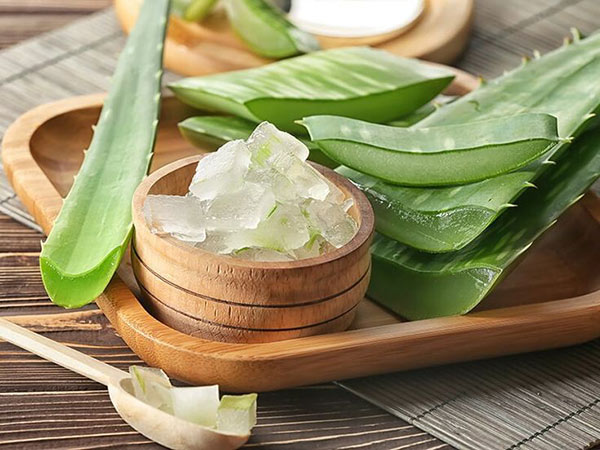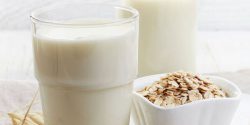Aloe vera benefits for skin and men and hair and female
Aloe vera
Aloe vera benefits for skin and men and hair and female on Nicholi site. We hope this article will be of interest to you.
Aloe vera offers numerous benefits for skin, hair, and overall health. For the skin, it provides moisturization, soothes irritation, treats acne, has anti-aging effects, aids in wound healing, lightens dark spots, and protects against damage. Men can also benefit from aloe vera for shaving irritation, skincare, scalp health, after-sun care, digestive health, and immune support. In terms of hair, aloe vera promotes scalp health, stimulates hair growth, conditions and moisturizes hair, soothes scalp inflammation, and protects against damage. However, it’s important to do a patch test, be aware of potential side effects, and use high-quality aloe vera products for optimal results.
Benefits of aloe vera
Aloe vera is a versatile plant that has been used for its medicinal and cosmetic benefits for centuries. Here are some of the key benefits associated with aloe vera:
Skincare: Aloe vera is widely known for its skincare benefits. It has moisturizing properties that can hydrate and nourish the skin. It is often used to treat various skin conditions such as dryness, sunburn, acne, eczema, and psoriasis. Aloe vera gel can soothe and calm irritated skin, reduce inflammation, and promote healing.
Wound healing: Aloe vera has been used traditionally to accelerate wound healing. It contains various compounds that aid in the regeneration of skin cells, including vitamins, minerals, and amino acids. Applying aloe vera gel to minor cuts, burns, or abrasions can help soothe the affected area, reduce pain, and promote faster healing.
Sunburn relief: Aloe vera is known for its cooling and soothing properties, which make it an excellent remedy for sunburns. Applying aloe vera gel to sunburned skin can provide immediate relief by reducing inflammation and redness. It also helps to moisturize the skin and prevent peeling.
Anti-inflammatory effects: Aloe vera contains several anti-inflammatory compounds, such as salicylic acid, bradykinase, and various enzymes. These components help reduce inflammation, making aloe vera beneficial for treating inflammatory skin conditions, joint pain, and other inflammatory disorders.
Digestive health: Aloe vera juice or gel can be consumed orally to support digestive health. It has natural laxative properties that can help relieve constipation by promoting regular bowel movements. Aloe vera may also have a soothing effect on the digestive tract, alleviating symptoms of heartburn, acid reflux, and irritable bowel syndrome (IBS).
Nutritional content: Aloe vera contains a variety of vitamins, minerals, and antioxidants, including vitamins A, C, and E, as well as calcium, magnesium, and zinc. These nutrients contribute to overall health and well-being and can help strengthen the immune system.
Hair care: Aloe vera is beneficial for maintaining healthy hair and scalp. It can help alleviate dandruff, reduce scalp itchiness and inflammation, and promote hair growth. Aloe vera gel can be applied directly to the scalp or added to shampoos and conditioners to improve hair health.
Aloe vera side effects
While aloe vera is generally considered safe for topical and oral use, some individuals may experience side effects or allergic reactions. Here are a few potential side effects to be aware of:
Skin irritation: Aloe vera, especially when applied topically, may cause skin irritation or allergic reactions in some people. It’s important to do a patch test before applying aloe vera gel to a larger area of skin, particularly if you have sensitive skin or a history of allergies.
Digestive discomfort: When consumed orally, aloe vera juice or supplements may cause digestive discomfort, including diarrhea, abdominal cramps, and electrolyte imbalances. This is primarily associated with the laxative properties of aloe vera. It’s recommended to follow the instructions and dosage guidelines provided by the manufacturer or consult a healthcare professional before consuming aloe vera orally.
Drug interactions: Aloe vera may interact with certain medications, such as blood thinners, diabetes medications, and diuretics. If you are taking any prescription medications, it’s important to consult with your healthcare provider before using aloe vera to ensure there are no potential interactions.
Allergic reactions: Some individuals may have an allergic reaction to aloe vera, resulting in symptoms such as skin rash, itching, swelling, or difficulty breathing. If you experience any signs of an allergic reaction after using aloe vera, discontinue its use and seek medical attention.
Pregnancy and breast-feeding: The safety of aloe vera during pregnancy and breastfeeding has not been extensively studied. Therefore, it’s advisable for pregnant or breastfeeding women to consult with a healthcare professional before using aloe vera products.
List of diseases cured by aloe vera
While aloe vera has been used traditionally for various health conditions, it’s important to note that it is not a cure for diseases. Aloe vera may offer certain benefits and can be used as a complementary treatment for some conditions. However, it’s always recommended to consult with a healthcare professional for proper diagnosis and treatment options. That being said, here are some conditions for which aloe vera has been used:
Skin conditions: Aloe vera is often used to soothe and alleviate symptoms associated with skin conditions such as sunburn, minor burns, cuts, wounds, insect bites, eczema, psoriasis, and acne. It may help reduce inflammation, promote healing, and moisturize the skin.
Digestive disorders: Aloe vera has been used to aid in digestion and alleviate symptoms of digestive disorders such as indigestion, heartburn, acid reflux, and irritable bowel syndrome (IBS). Its mild laxative properties may help relieve constipation.
Diabetes: Some studies suggest that aloe vera may have a positive impact on blood sugar levels in individuals with diabetes. It may help improve insulin sensitivity and regulate glucose levels. However, more research is needed in this area.
Oral health: Aloe vera gel or mouthwash containing aloe vera extract may be used to promote oral health. It may help reduce plaque buildup, gingivitis, and periodontal disease. Aloe vera’s antimicrobial properties may help combat oral bacteria.
Joint and muscle pain: Aloe vera gel or creams may provide temporary relief from joint and muscle pain due to their anti-inflammatory properties. It can be used as a topical application to soothe sore muscles or joints.
Immune support: Aloe vera contains antioxidants and nutrients that may support the immune system. It may help strengthen the body’s defenses and promote overall health and well-being.
Aloe vera benefits for skin
Aloe vera offers several benefits for the skin. Here are some of the key benefits of using aloe vera for skin care:
Moisturization: Aloe vera is an excellent natural moisturizer. It contains a high water content, which helps hydrate the skin without leaving it greasy or oily. Aloe vera gel can be used on both dry and oily skin types to provide moisture and maintain the skin’s natural balance.
Soothing and calming: Aloe vera has cooling and anti-inflammatory properties that can soothe and calm irritated skin. It can be used to alleviate redness, itching, and inflammation caused by conditions like sunburn, rashes, or minor cuts and burns.
Acne treatment: Aloe vera has been used as a natural remedy for acne. Its antibacterial properties can help kill acne-causing bacteria, while its anti-inflammatory properties can reduce redness and swelling associated with acne breakouts. Additionally, aloe vera may help control excess oil production, preventing clogged pores and further breakouts.
Anti-aging effects: Aloe vera is rich in antioxidants, such as vitamins C and E, which can help combat free radicals that contribute to skin aging. Regular use of aloe vera on the skin may help reduce the appearance of fine lines, wrinkles, and age spots, promoting a more youthful complexion.
Healing properties: Aloe vera contains compounds that promote wound healing and skin regeneration. It can be used to accelerate the healing process of minor cuts, burns, and abrasions. Aloe vera’s ability to stimulate collagen production may also help improve the overall texture and elasticity of the skin.
Lightening dark spots: Aloe vera has been used to lighten and reduce the appearance of dark spots, including hyperpigmentation and acne scars. Its natural exfoliating properties help remove dead skin cells, promoting a more even skin tone.
Skin protection: Aloe vera can act as a protective barrier for the skin. Its gel forms a thin layer that helps shield the skin from environmental pollutants, UV radiation, and other harmful elements. This protective barrier can also help retain moisture in the skin, preventing dryness and dehydration.
Aloe vera benefits for men
Aloe vera offers several benefits for men’s health and well-being. Here are some of the key benefits of using aloe vera for men:
Shaving irritation: Aloe vera gel can be used as a natural aftershave to soothe and calm the skin after shaving. It helps reduce redness, inflammation, and razor burn, providing relief to sensitive skin.
Moisturization: Aloe vera is an excellent moisturizer for the skin. It can help hydrate and nourish the skin, preventing dryness and maintaining its natural moisture balance. Regular use of aloe vera can keep the skin soft, smooth, and healthy-looking.
Skincare: Aloe vera offers various benefits for skin health. It can help reduce acne breakouts and inflammation, promote wound healing, and improve the overall appearance of the skin. Aloe vera gel can be used as a natural remedy for common skin issues that men may face, such as razor bumps, ingrown hairs, and sunburn.
Scalp health: Aloe vera can promote a healthy scalp and hair. It has soothing and moisturizing properties that can help reduce scalp itchiness, dryness, and dandruff. Aloe vera gel or products containing aloe vera extracts can be used as a natural conditioner for the hair, leaving it soft, hydrated, and manageable.
After-sun care: Men who spend time outdoors or engage in outdoor activities can benefit from aloe vera’s soothing and cooling properties. Aloe vera gel can provide relief and promote healing for sunburned skin, helping to reduce redness and inflammation caused by excessive sun exposure.
Digestive health: Aloe vera juice, when consumed orally, can support digestive health in men. It may help relieve occasional constipation by promoting regular bowel movements. Aloe vera juice is also known to have a soothing effect on the digestive system, potentially alleviating symptoms of acid reflux and other digestive discomforts.
Immune support: Aloe vera contains antioxidants and nutrients that can support overall immune health. It helps strengthen the body’s natural defense mechanisms, promoting general well-being and resilience against common illnesses.
Aloe vera benefits for hair
Aloe vera offers several benefits for hair health and can be used as a natural remedy for various hair concerns. Here are some of the key benefits of using aloe vera for hair:
Scalp health: Aloe vera has soothing and moisturizing properties that can help alleviate scalp itchiness, dryness, and dandruff. Applying aloe vera gel or using hair products containing aloe vera extracts can help nourish and hydrate the scalp, promoting a healthy environment for hair growth.
Hair growth: Aloe vera has enzymes that can stimulate hair follicles and promote hair growth. It helps remove dead skin cells from the scalp, allowing for better nutrient absorption and improved hair growth. Regular use of aloe vera on the scalp can contribute to thicker and healthier-looking hair.
Conditioner and moisturizer: Aloe vera gel acts as a natural conditioner, providing deep hydration to the hair strands. It helps restore moisture, reduce frizz, and improve the overall texture and shine of the hair. Aloe vera can be used as a leave-in conditioner or added to regular conditioners for added hydration benefits.
Scalp inflammation and irritation: Aloe vera’s anti-inflammatory properties can help soothe and calm an irritated scalp. It can be beneficial for individuals with conditions like scalp psoriasis or eczema, as it helps reduce inflammation, itching, and redness.
Hair and scalp pH balance: Aloe vera has a pH level similar to that of the scalp, which makes it ideal for restoring the natural pH balance of the hair and scalp. By maintaining the proper pH balance, aloe vera helps keep the hair and scalp healthy and less prone to dryness or excessive oiliness.
Repair and damage prevention: Aloe vera contains vitamins, minerals, and amino acids that nourish and repair damaged hair. It can help strengthen the hair strands, reduce breakage, and prevent split ends. Regular use of aloe vera can contribute to overall hair health and prevent further damage.
How to use aloe vera for inflammation?
Aloe vera can be used topically to help reduce inflammation. Here’s how you can use aloe vera for inflammation:
Obtain fresh aloe vera gel: Cut a mature leaf from an aloe vera plant and carefully extract the gel. To do this, slice the leaf lengthwise and use a spoon to scoop out the gel from the leaf’s inner portion. Ensure you are using the gel from the inner part of the leaf, as the outer part may contain a yellowish latex substance that can cause skin irritation in some individuals.
Cleanse the affected area: Gently cleanse the inflamed area with mild soap and water. Pat the area dry with a clean towel.
Apply aloe vera gel: Take a sufficient amount of fresh aloe vera gel and apply it directly to the inflamed area. Massage it into the skin using gentle circular motions.
Allow absorption: Let the aloe vera gel absorb into the skin for about 15 to 20 minutes. During this time, the gel will provide a cooling sensation and start to soothe the inflammation.
Repeat as needed: Depending on the severity of inflammation, you can reapply the aloe vera gel 2-3 times a day or as needed for relief. Make sure to clean the area and reapply fresh gel each time.
Aloe vera’s medicinal uses
Aloe vera has a long history of medicinal use and is known for its various therapeutic properties. Here are some of the medicinal uses of aloe vera:
Wound healing: Aloe vera has been traditionally used to aid in the healing of wounds, cuts, burns, and other skin injuries. It helps promote tissue regeneration, reduce inflammation, and accelerate the healing process.
Sunburn relief: Aloe vera is often used to soothe and provide relief for sunburned skin. It’s cooling and anti-inflammatory properties can help reduce redness, pain, and inflammation associated with sunburn.
Skin conditions: Aloe vera is beneficial for several skin conditions, including eczema, psoriasis, acne, and dermatitis. Its moisturizing and anti-inflammatory properties can help soothe and alleviate symptoms associated with these conditions.
Digestive health: Aloe vera has been used to support digestive health. Consuming aloe vera juice or gel may help relieve occasional constipation by promoting regular bowel movements. It is also believed to have a soothing effect on the digestive system and may help with conditions like acid reflux and irritable bowel syndrome (IBS).
Oral health: Aloe vera gel or mouthwash containing aloe vera extracts can be used for oral health. It may help reduce plaque buildup, gingivitis, and periodontal disease. Aloe vera’s antimicrobial and anti-inflammatory properties can contribute to improved oral hygiene.
Immune support: Aloe vera contains antioxidants and other compounds that can support the immune system. Regular consumption of aloe vera or its supplements may help strengthen the body’s natural defenses and promote overall health and well-being.
Diabetes management: Some studies suggest that aloe vera may have a positive impact on blood sugar control and insulin sensitivity in individuals with diabetes. However, further research is needed to fully understand its potential role in diabetes management.






















